Onnaing
French Antique Barbotine Pig Pitcher - Onnaing - 1900s
French Antique Barbotine Pig Pitcher - Onnaing - 1900s
Couldn't load pickup availability
Step into a whimsical world of vintage French Majolica ceramics with this rare Onnaing pig water pitcher, dating from the early 1900s
Known as the “Maitre d’Hotel,” this extraordinary piece captures vintage hospitality in every detail. The pig is depicted in classic waiter attire—sporting a crisp white apron over a subtle gray suit, accented by a red tie, a tasteful red boutonniere, and a distinctive turquoise cap. With a wine bottle tucked under one arm and a serviette draped elegantly over the other, he even holds a cork and bottle opener, symbolizing his role in service.
Ingeniously, the handle is fashioned in the shape of a chair, merging functionality with playful artistry. The interior is finished in Onnaing’s signature red glaze, adding a burst of vivid character.
Referenced in Maryse Bottero’s Pichets en Barbotine (p. 83), this pitcher is a must-have for collectors who cherish the spirited legacy of early 20th-century French ceramics.
- Maker: Onnaing, France
- Date: Circa 1900s
- Material: Barbotine Majolica
- Mark: Stamped 4015 plus an incised unidentified mark "FSG"
-
Condition: Very good condition, no chips or cracks, quite some crazing.
Dimension:
Height: 25 cm | 9.8 in
Width: 15 cm | 5.9 in
Depth: 18 cm | 7 in
Share
- Worldwide Shipping
- Secure Packaging
- Loving Curation
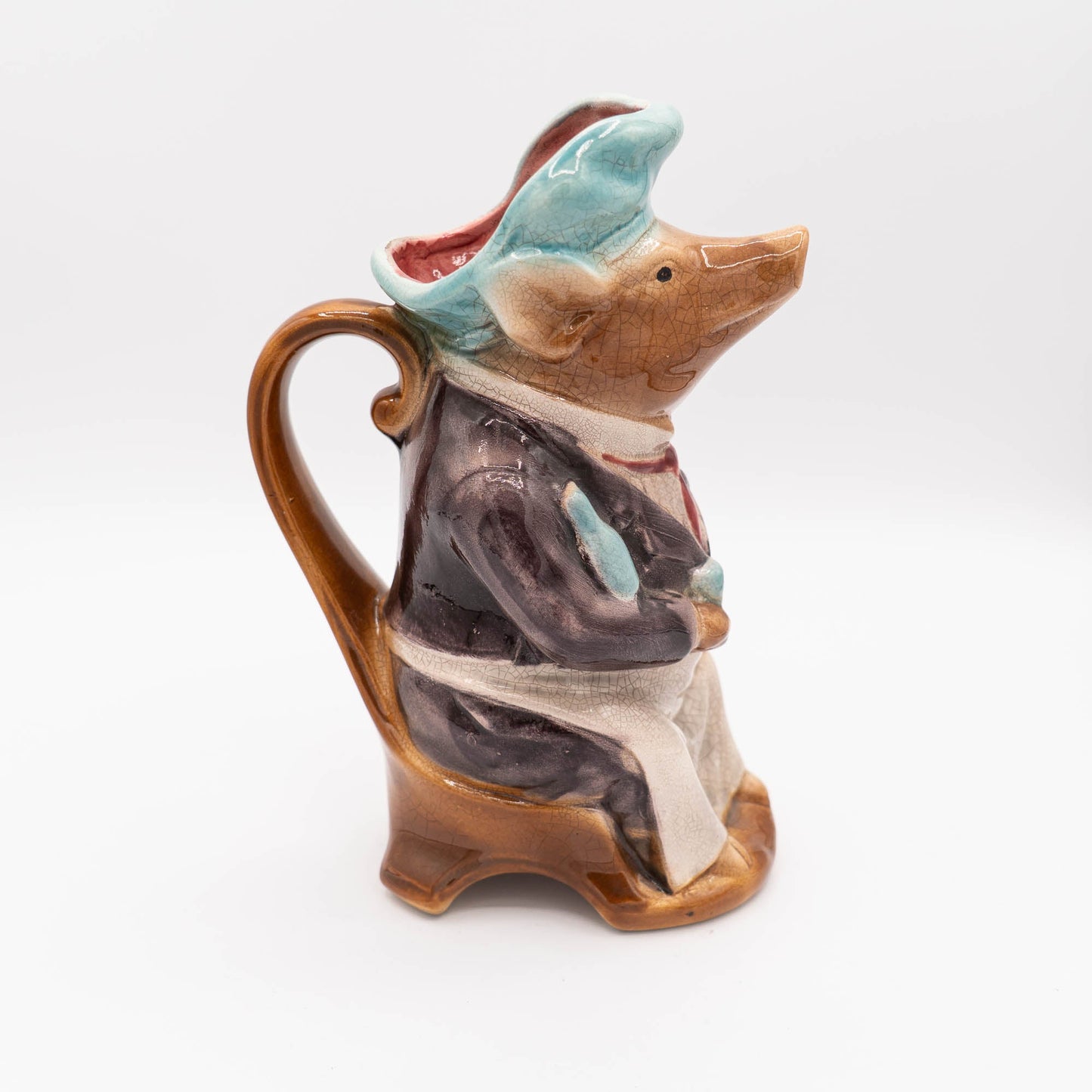
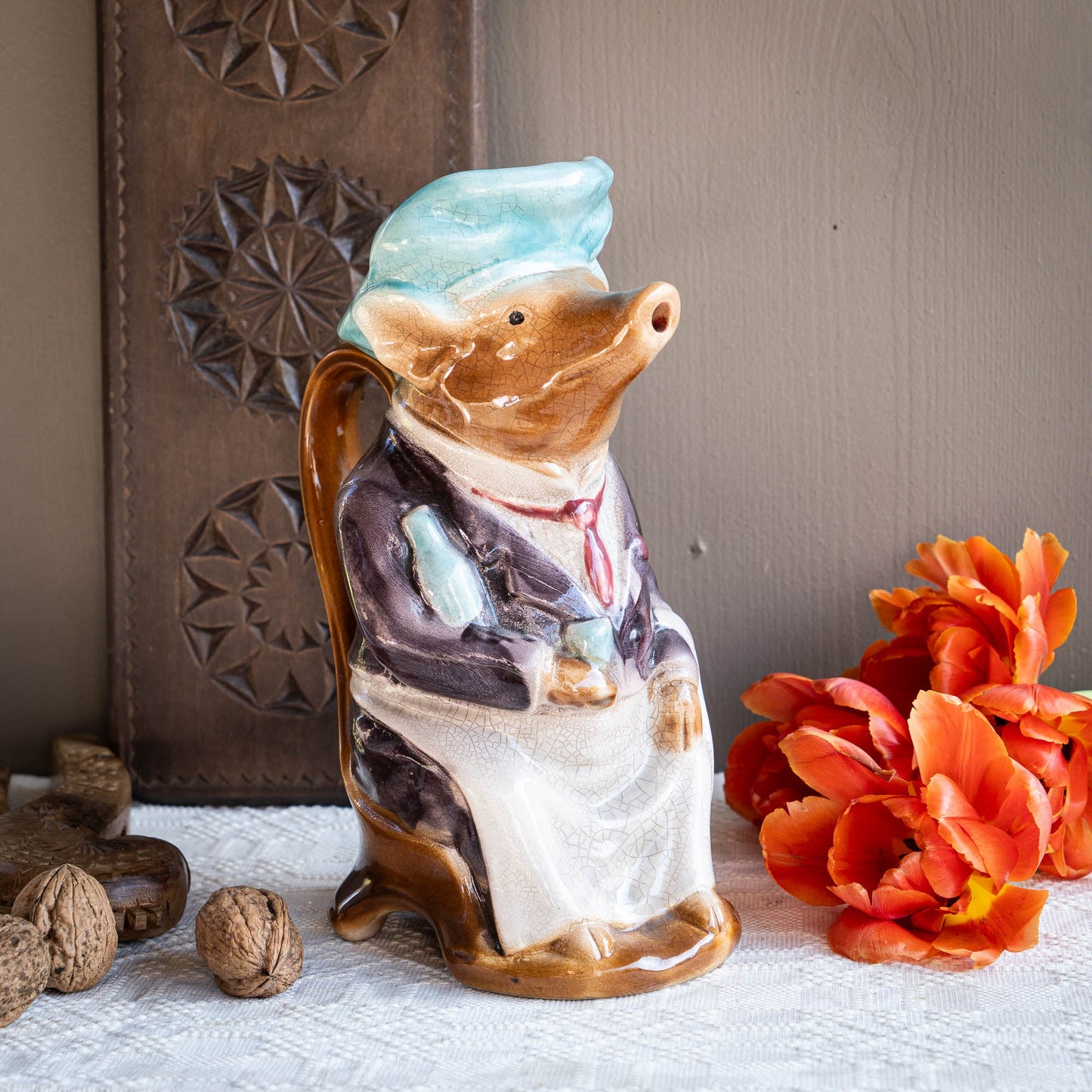
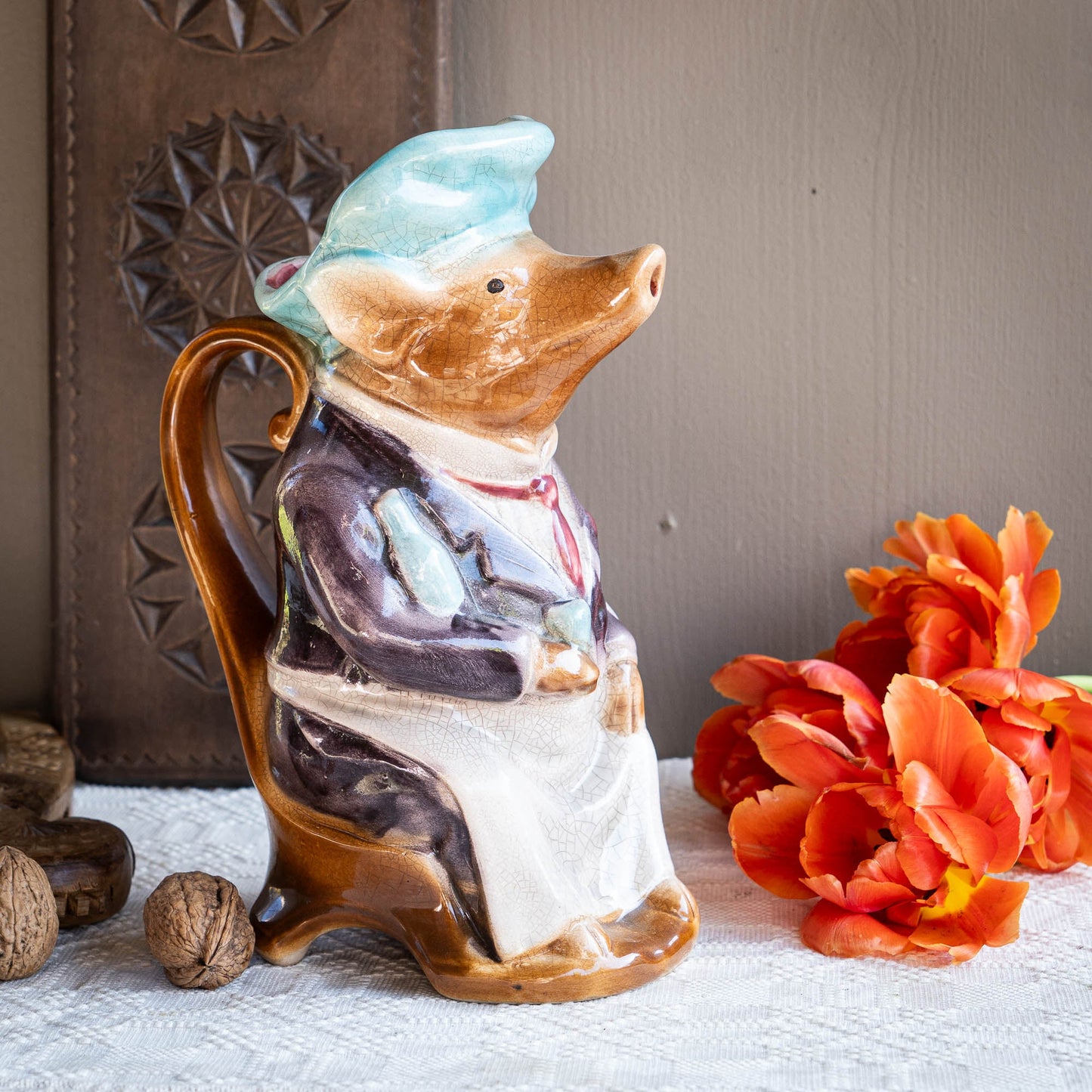
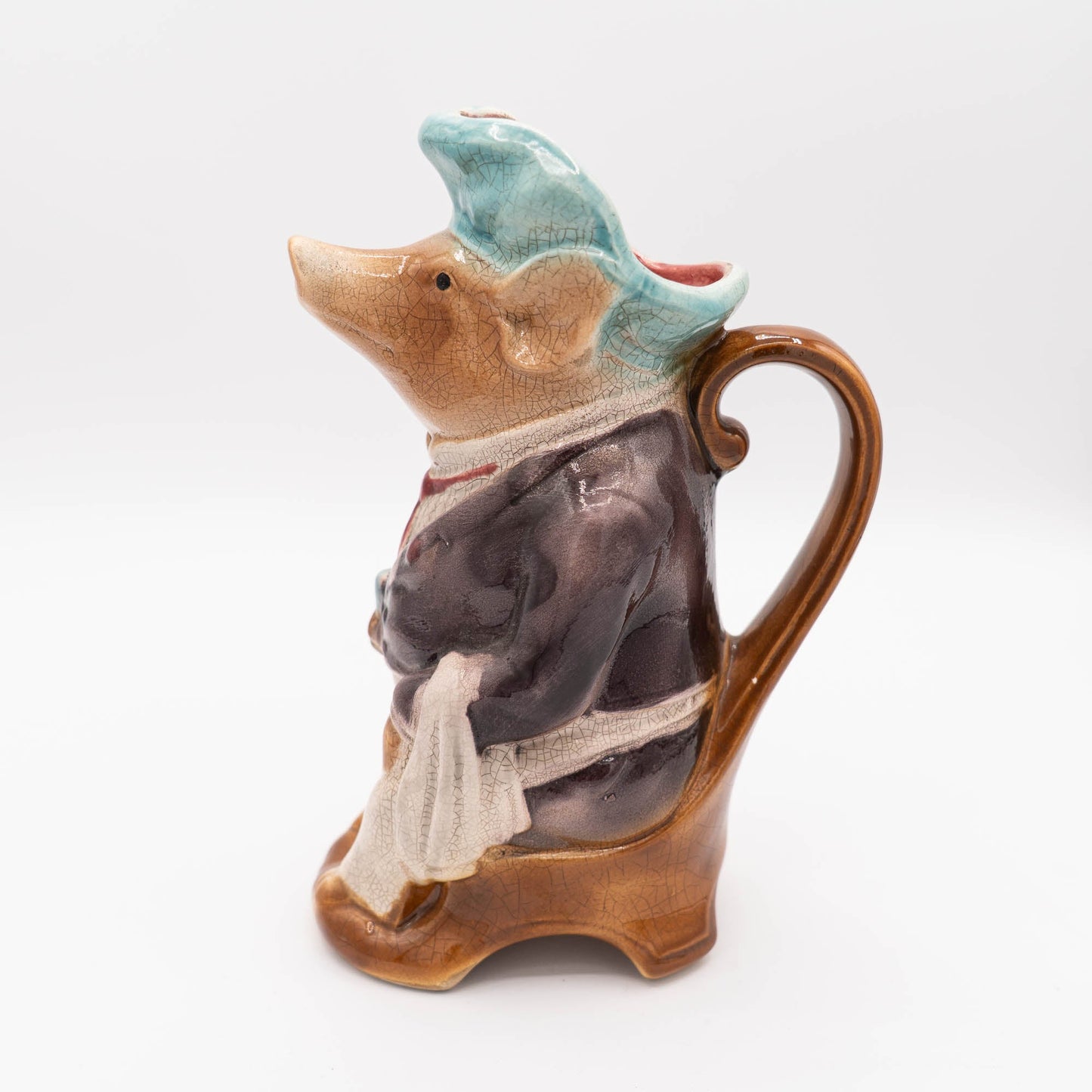
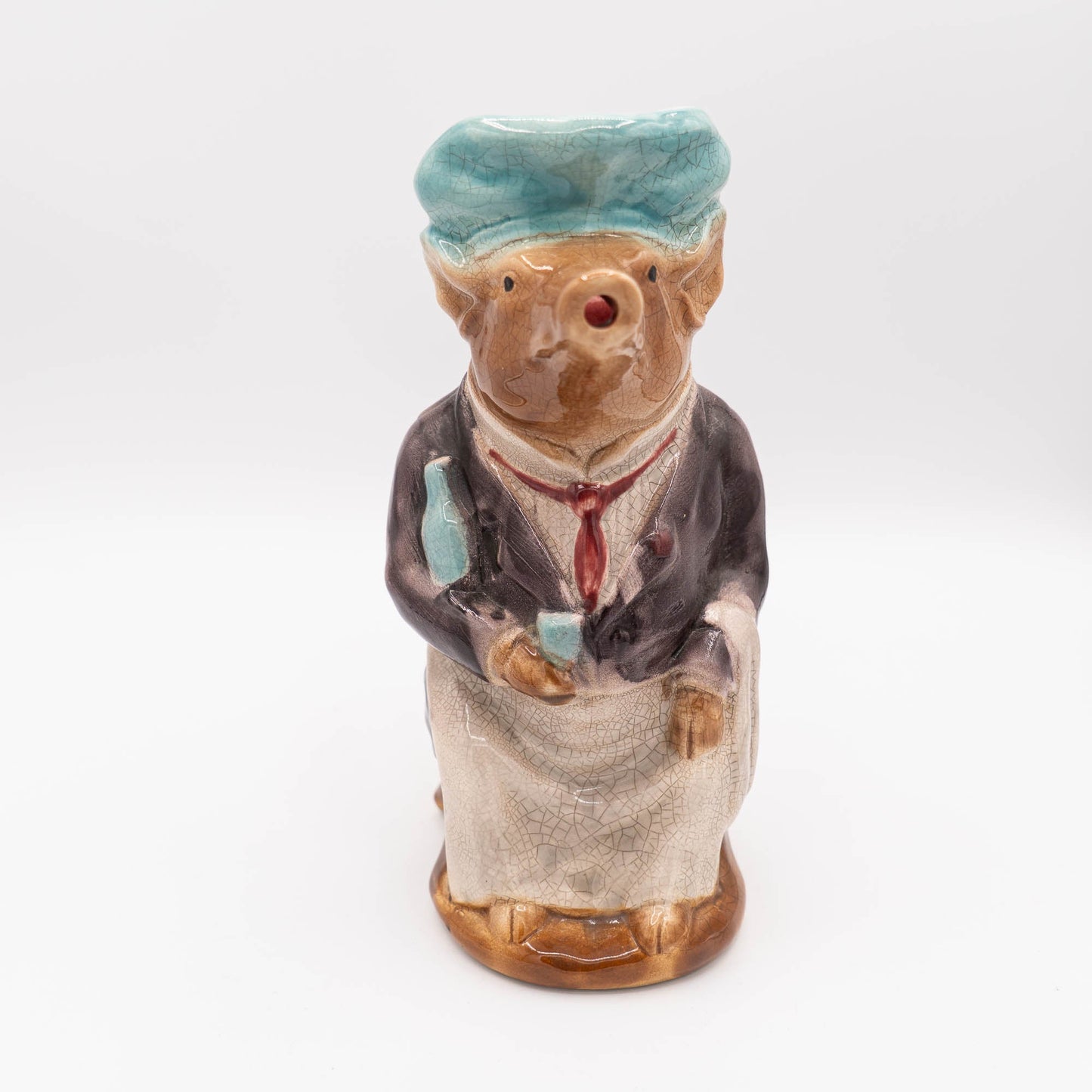
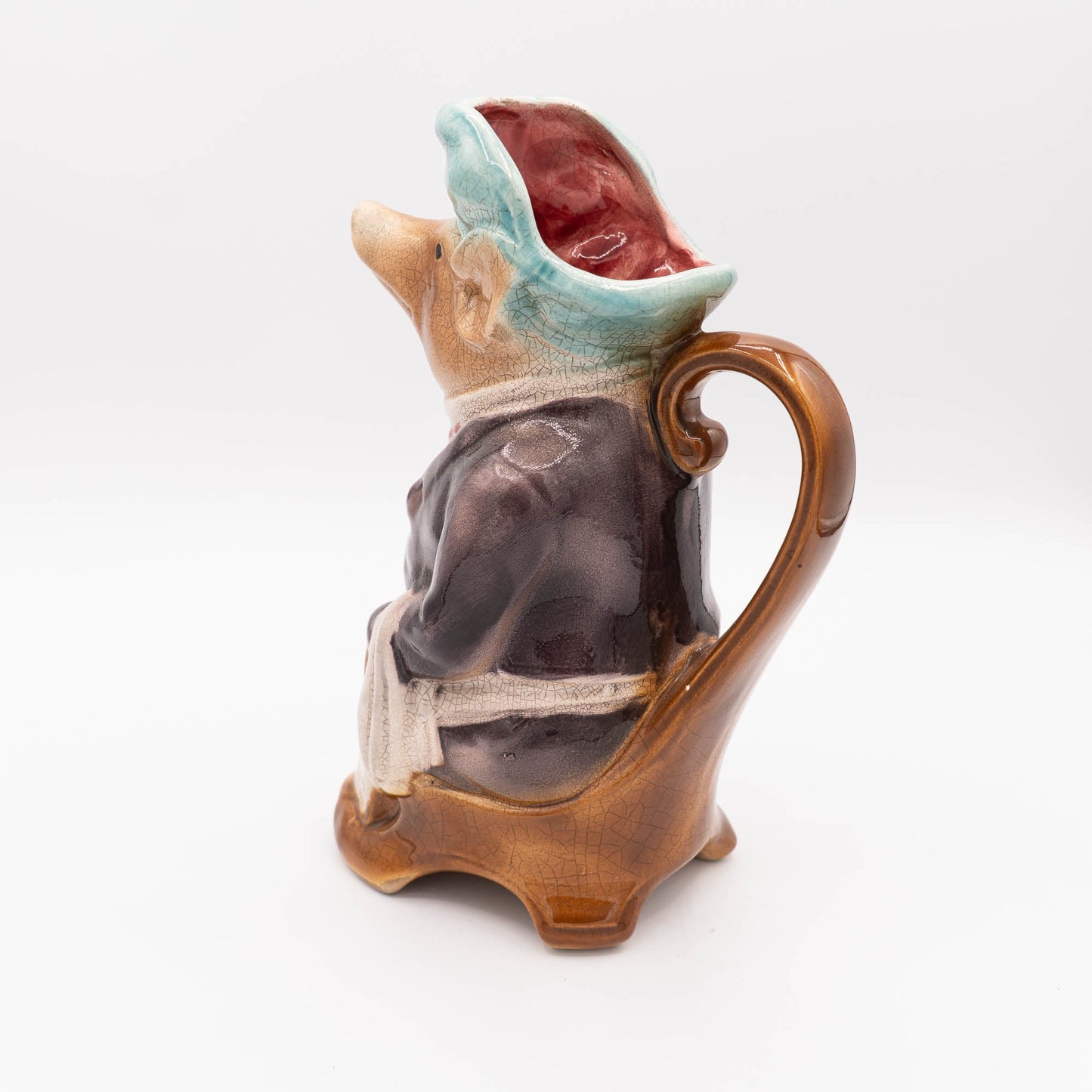
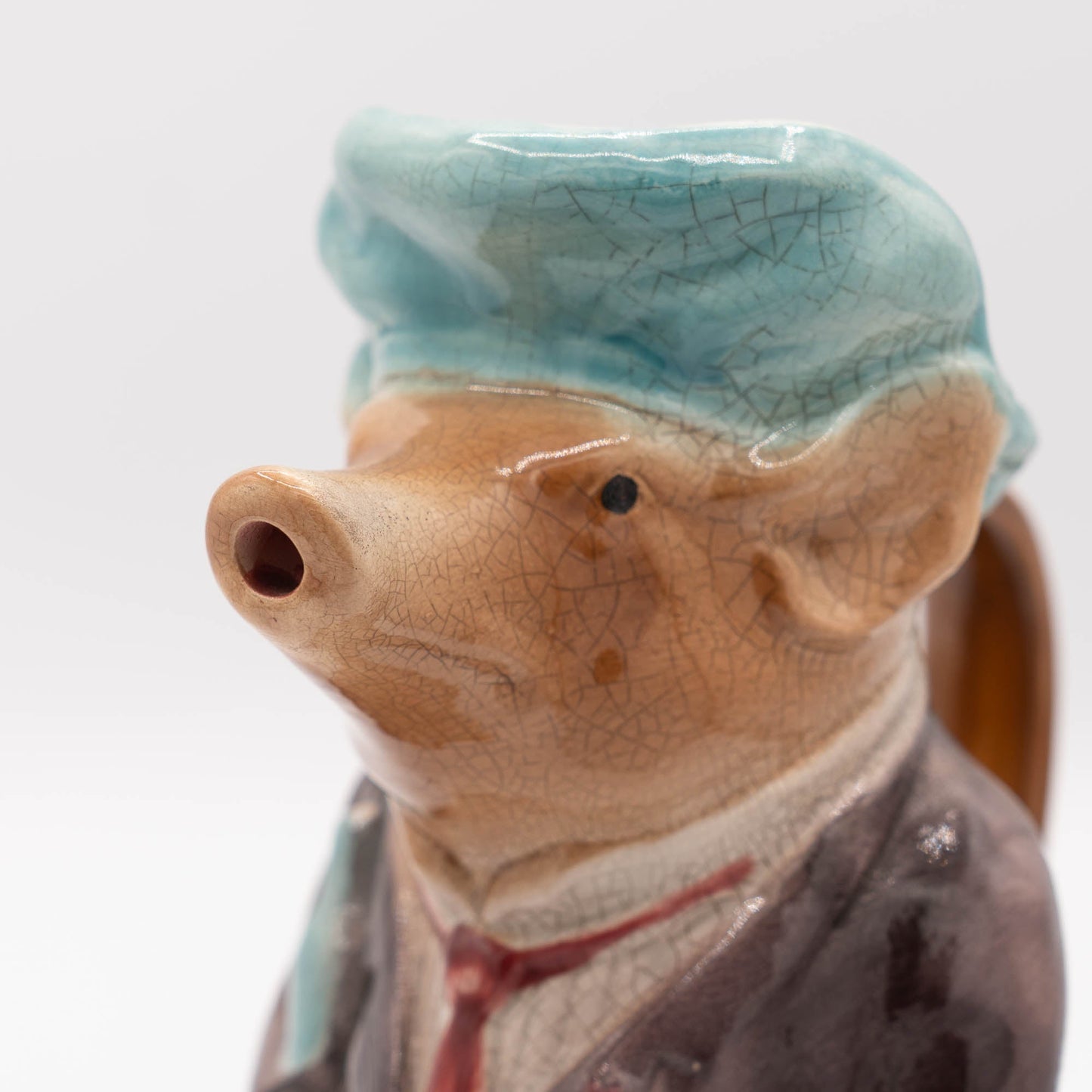
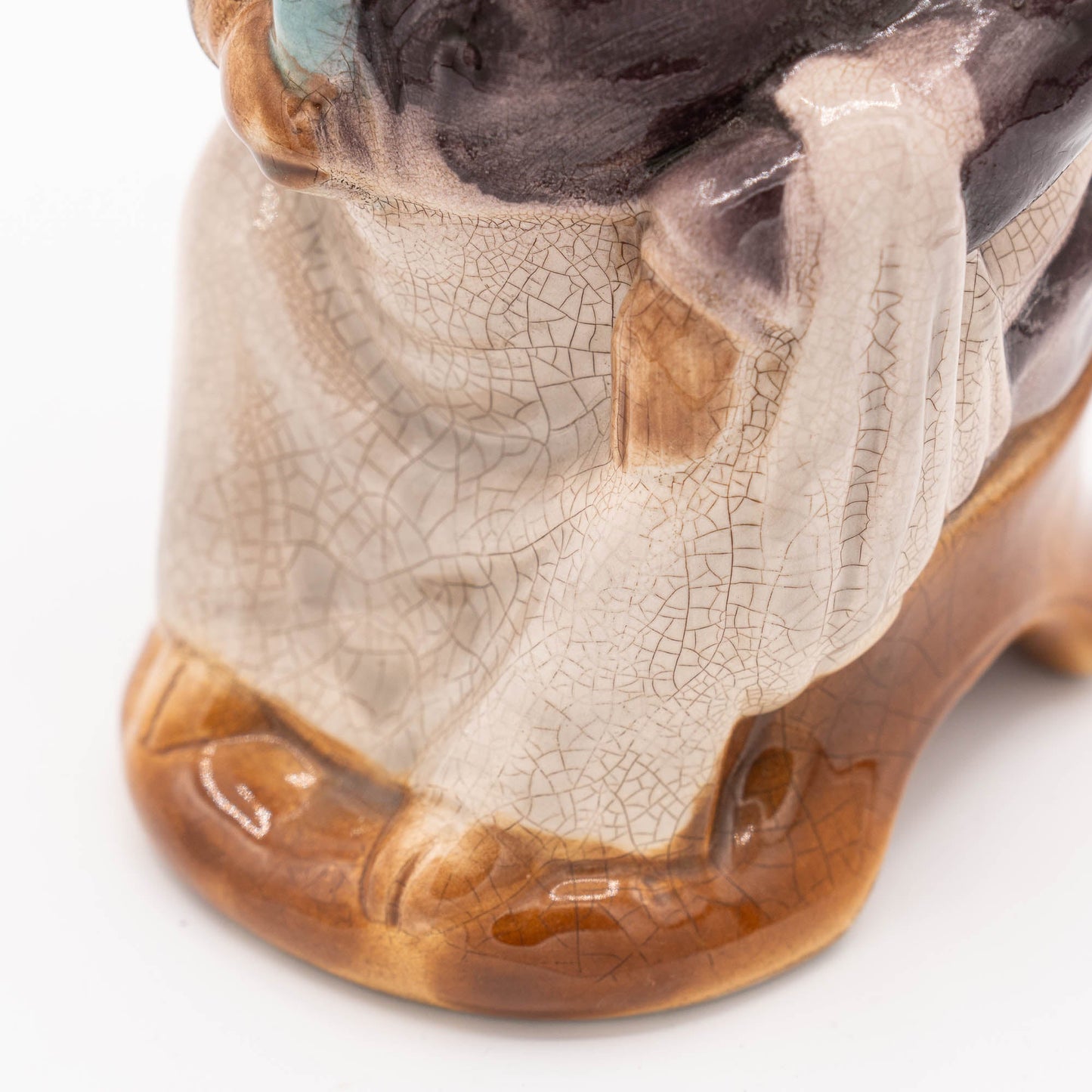
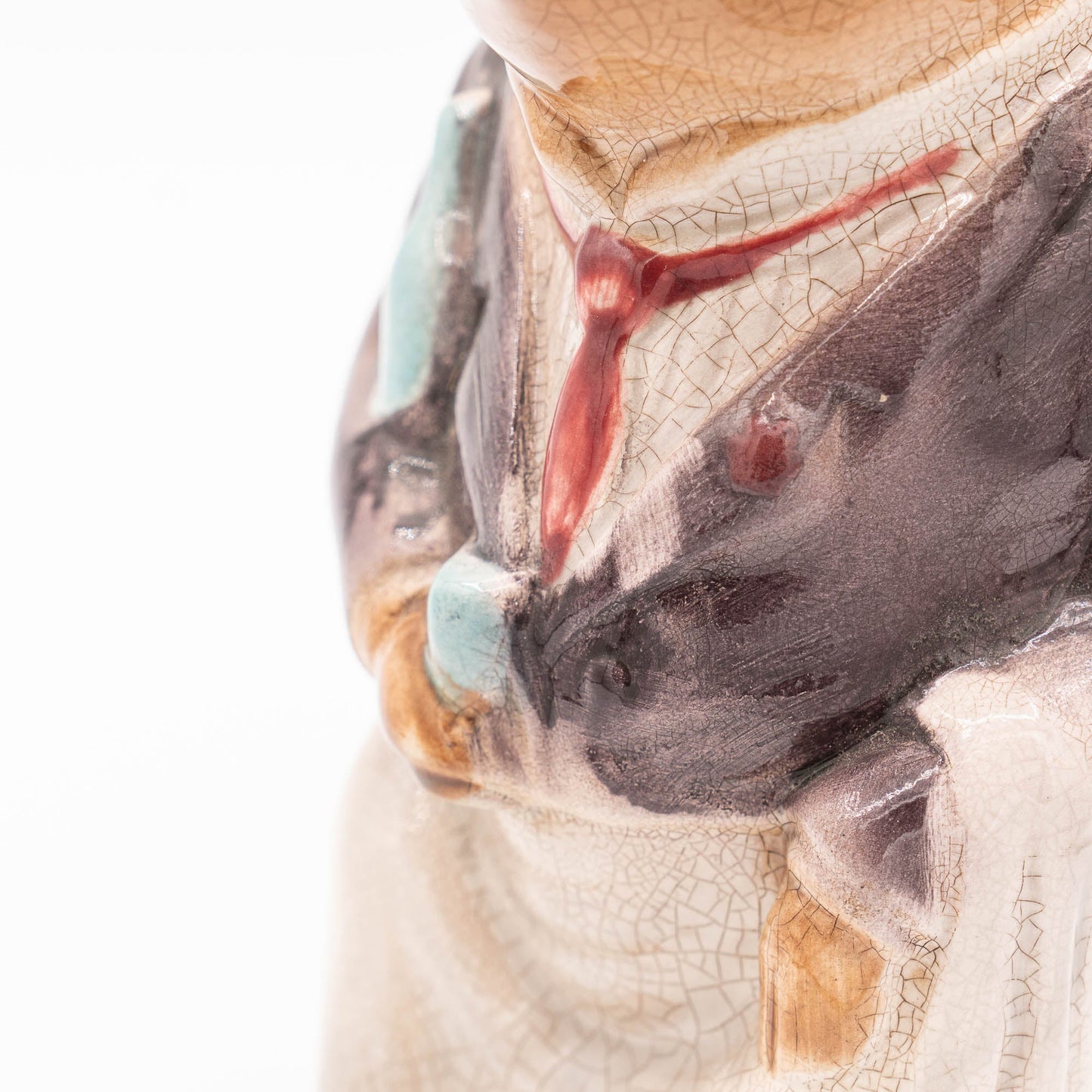
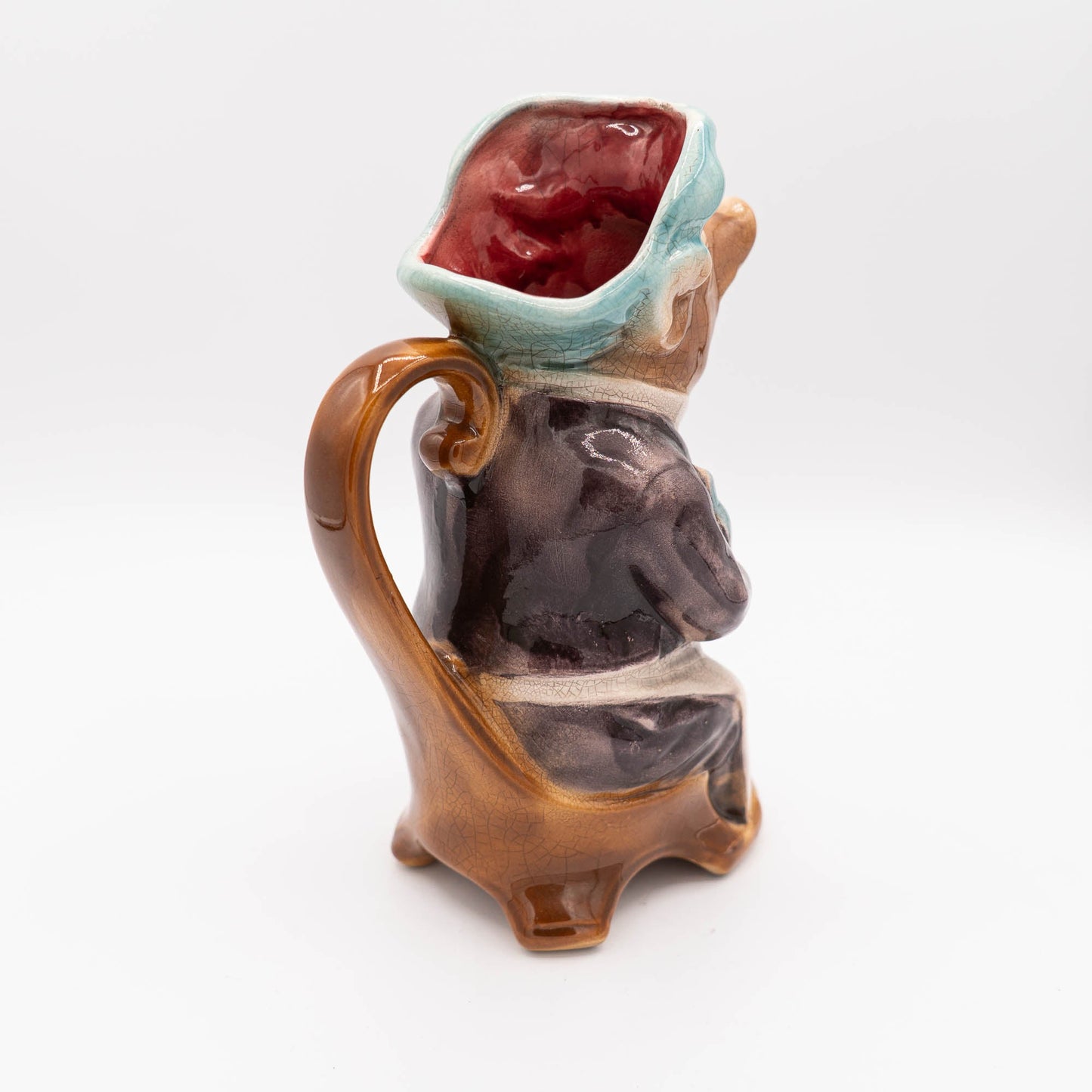
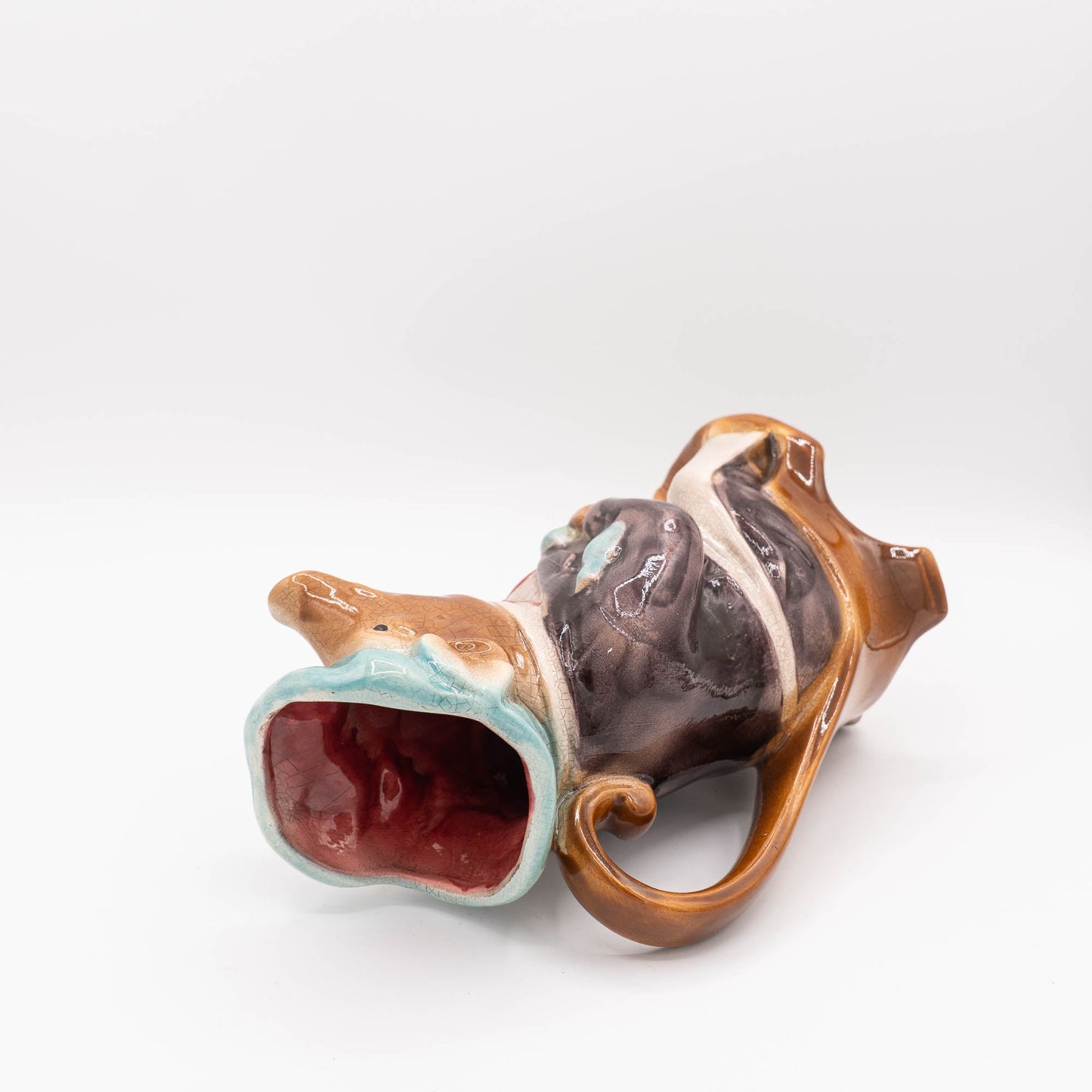
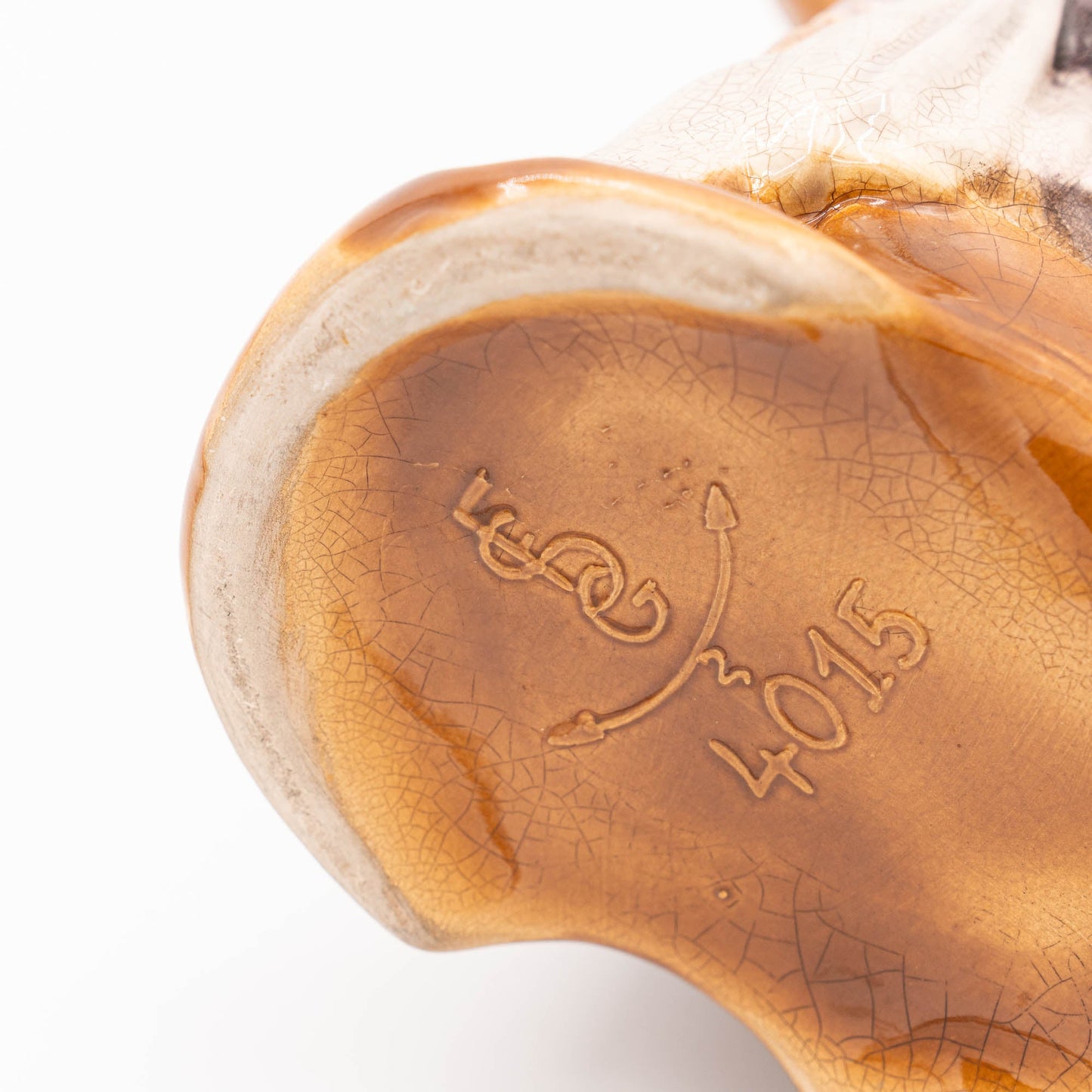
Origin & Maker
The Onnaing Faiencerie, founded in 1821 by Charles de Bousies in the town of Onnaing, northern France, quickly rose to prominence for its artistic ceramic creations. Initially producing functional stoneware, the factory gained fame in the latter half of the 19th century after being acquired by the Mouzin family. Under their leadership, Onnaing became synonymous with richly detailed barbotine Majolica pieces.
The factory’s hallmark creations were its vividly coloured pitchers, planters, and decorative ceramics featuring whimsical characters, floral motifs, and historical figures. Each design was carefully modelled and assigned a unique number for cataloguing. Their works combined playful storytelling with masterful craftsmanship, making them highly sought-after collectibles today.
World War I dealt a severe blow to the factory when it was almost destroyed by German forces. After a brief closure, production resumed in 1921. However, changing tastes and economic struggles led to the factory’s final closure in 1938.
Despite its closure, Onnaing’s legacy endures through its timeless creations. Collectors prize its expressive Majolica pieces, especially the iconic character jugs and barbotine pitchers, which continue to charm with their artistic detail, vibrant colours, and unmistakable French flair. Onnaing ceramics remain a treasured piece of European ceramic history.
Blog posts
View all-

A Serendipitous Morning at the Rue de Bretagne ...
There are few joys in life that match the thrill of stumbling upon a hidden treasure, and for me, flea markets hold that magical allure. One of my favourite flea...
A Serendipitous Morning at the Rue de Bretagne ...
There are few joys in life that match the thrill of stumbling upon a hidden treasure, and for me, flea markets hold that magical allure. One of my favourite flea...
-

Emile Bourgeois and "Le Grand Dépôt" in Paris
Recently, I found this stunning Sarreguemines wash set. It was at the Brocante in Belfort, France. On this day, we had got up at 4 AM to be there in...
Emile Bourgeois and "Le Grand Dépôt" in Paris
Recently, I found this stunning Sarreguemines wash set. It was at the Brocante in Belfort, France. On this day, we had got up at 4 AM to be there in...
-

The Legacy of Robert Haviland: A Journey from N...
The story of Robert Haviland porcelain is one of artistry, transatlantic ambition, and enduring heritage. It begins in the mid-19th century when David Haviland, an enterprising New Yorker, founded Haviland...
The Legacy of Robert Haviland: A Journey from N...
The story of Robert Haviland porcelain is one of artistry, transatlantic ambition, and enduring heritage. It begins in the mid-19th century when David Haviland, an enterprising New Yorker, founded Haviland...















